Saving Private Ryan
 for intense prolonged realistically graphic sequences of war violence, and for language.
for intense prolonged realistically graphic sequences of war violence, and for language.
Reviewed by: Jeff James
CONTRIBUTOR
| Moral Rating: | Offensive |
| Moviemaking Quality: |
|
| Primary Audience: | Adults Mature-Teens |
| Genre: | War Action Drama |
| Length: | 2 hr. 49 min. |
| Year of Release: | 1998 |
| USA Release: |
July 24, 1998 |
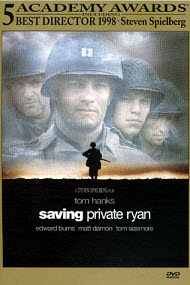

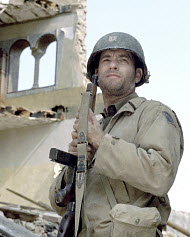
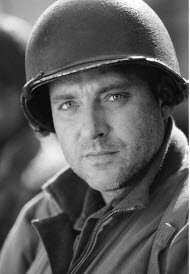
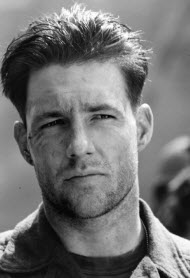
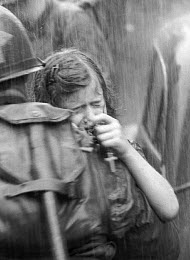
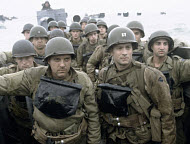
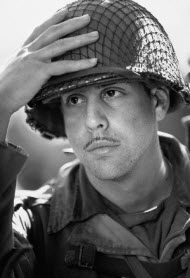
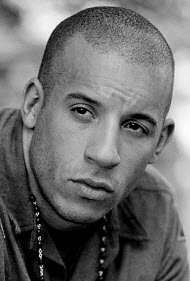
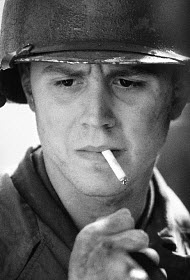
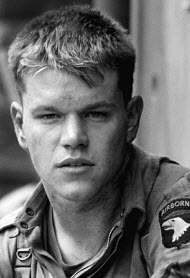

War in the Bible
What is the Biblical perspective on war? Answer
Armies in the Bible
FEAR, Anxiety and Worry… What does the Bible say? Answer
Death in the Bible
Burial in the Bible
PRAYER—Tips for new and growing Christians
Why aren’t my prayers answered? Answer
Prayer in the Bible
Why does God allow innocent people to suffer? Answer
What about the issue of suffering? Doesn’t this prove that there is no God and that we are on our own? Answer
Does God feel our pain? Answer
ORIGIN OF BAD—How did bad things come about? Answer
| Featuring |
|---|
|
Tom Hanks … Captain Miller Tom Sizemore … Sergeant Horvath Edward Burns … Private Reiben Vin Diesel … Private Caparzo Giovanni Ribisi … T-4 Medic Wade Matt Damon … Private Ryan Ted Danson … Captain Hamill Paul Giamatti … Sergeant Hill Bryan Cranston … War Department Colonel Barry Pepper … Private Jackson Adam Goldberg … Private Mellish Jeremy Davies … Corporal Upham Dennis Farina … Lieutenant Colonel Anderson Nathan Fillion … Minnesota Ryan Corey Johnson … Radioman See all » |
| Director |
|
Steven Spielberg |
| Producer |
| Amblin Entertainment, DreamWorks SKG, Mark Gordon Productions, Mutual Film Company, Paramount Pictures, Steven Spielberg, See all » |
| Distributor |
“In the last great invasion of the last great war, the greatest danger for eight men was saving… one.”

Everything you’ve heard about this film is true. It’s devastating, moving, scary. No other movie has moved me to such a point of reflection as “Saving Private Ryan”. Steven Spielberg has created a bookend to his masterpiece, “Schindler’s List”, both films set in World War 2, posing the question, “How valuable is human life?” In this movie, it’s “one life.” As we sit and listen to our grandfathers' stories of what it was like in the second world war, we try our hardest to picture young boys huddled in trenches, holding their weapon tightly, wishing to God they would make it through the day without getting wounded. When we think of Normandy, and the old news footage comes to mind—thousands of troops, ships, zeplins, and armored vehicles rolling onto the beach and ultimately deep into France. To aid in our attempt at realizing war for ourselves, we turn to movies which, and veterans would easily agree, have been sanitized for the public. No one would dare show what it was really like. It’s just too much.
They said this about the Holocaust. It was too overwhelming to show to the public. But the greatest filmmaker of our time shrugged it off and set out to unleash a poetic and disturbing film. He picked up an Academy Award for his candor.
Folks, I openly say he’s done it again only this time, we see the reverse of the coin. Spielberg and his team have produced a movie that is beyond veracity, beyond frankness, beyond candor. They brilliantly pull the viewer into the screen and onto the beaches of Normandy, and the only way out is to get up and physically leave the theater. You WILL be there. The visual and aural accuracy is so real, your other senses will kick in. you’ll smell the fire hot metal of mortar and bullets as they whiz past your head. you’ll tense up as explosions rattle your chair and shake your inards. you’re throat will tighten as characters you’ve learned to identify with are mercilessly killed.
There is no movie that can compare, no other feeling on Earth that will shock you as this movie does. That is, unless you actually fought in the war. It is disturbing, it is ferocious, it is unyielding, it is absolute hell on Earth. And, in your mind, you’ll swear up and down that it’s real.
Two-time Oscar-Winner, Tom Hanks, plays Captain Miller—a real human being. He’s a leader and a poet, and he’s about as nervous and scared as everyone else. Brilliant performance. Tom Sizemore (who I think deserves a Best-Supporting Oscar) is Miller’s number one; a tough guy, but not as cliché as you’d expect. Matt Damon is the title character, Private Ryan. We don’t see him until the last hour of the movie. The plot is simple: Miller must find Private Ryan somewhere behind enemy-lines and get him out of there so the boy can go home to see his mother. Why should these eight men risk their lives so one can catch a free ride home? Easy: his three brothers were killed within days of each other and the top brass has to tell Mrs. Ryan her boys are dead. But one may still be alive. That’s why Miller must lead his troops and find Ryan at all cost. Not so easy.
The movie begins with the Normandy Invasion on Omaha Beach—D-Day. It lasts for a tense, arm-chair-grabbing, averting-the-eyes, thirty minutes. It is perhaps THE greatest portrayal of modern warfare captured on film. After the push, Miller is assigned to find Ryan and we are allowed to meet and identify with the eight men of the platoon. Along the way, there are some cameos of famous actors, i.e. Dennis Farena (“Get Shorty”) and Ted Danson (“Cheers”). But it’s one battle scene after another, dotted with short “breathers” of dialogue and characterization. The final battle is the closest you will ever get to fighting a war. You feel like taking shelter behind the chair in front of you.
John Williams conducted the Boston Pops Orchestra for the scoring of the film (which is strategically sparse; there is no music during battle scenes). During a session, a man playing the trombone broke down in tears and had to leave because the images on the screen above him were so haunting. Another story: before the film’s main release, the studio screened it before a group of WW2 veterans to see their reaction and to question them on its realism. A quarter of the men left the theater ten minutes into it, and the projectionist had to stop the film a number of times to let the men compose themselves for another dose.
Every ounce of energy you have will be used up as you take this movie into your being. You will leave exhausted. It is gory, but it’s not dwelt upon. It’s there, in the background: wounded men lying around, the water stained with blood, a soldier carrying his detached arm, another soldier pushing his intestines back into his body, rows of men mowed down by machine guns on high, bodies exploding, bullets piercing helmets like clay, sand flying everywhere, rock and debris showering down on advancing troops, smoke and carnage everywhere. In one scene, a dying man calls for his mother far away, like a little child. In another scene, a German soldier pushes a knife painfully and excruciatingly slow into an American soldier’s heart and then whispers into his ear as he pushes it in farther. you’ll cringe, you’ll cry, you’ll hold your hand over your mouth to hold your breath.
Some may say that the violence is too much, and they’re right. It is. But you know what, it’s WAR. It’s a film about WAR, got it? No children under fifteen should see this movie, BUT, I firmly believe, even though I am a devout Christian and abhor wanton violence, that everyone else should see this movie. It’s too important to miss.
Why? Well, okay, it’s rated-R for obvious violence and a fair amount of language. But this is more than a movie, it’s more a statement of the reality of war. Teenagers are desensitized to violence thanks to Nintendo and Sega; adults are callous to violence thanks to the nightly news. We talk about war in such a way that we should be ashamed of ourselves. We have no concept of what those boys went through. No wonder the old veterans of World War Two despise our dodge-drafting President. They had to stick it out while misguided “wimps” (in their eyes), stayed at home and “wined” about the war. Street violence is beyond the limits of control, frustrated children are killing their classmates in schools across the nation. They haven’t a clue.
War is hell. Those three words sum it up. This movie is a war movie in every right and in every sense of the word. I have to say that if you are tame at heart, steer clear of this one, but if you really want to see it, take someone with you that can somewhat handle it. Even the toughest movie goer will lose it somewhere in the movie.
The cast was superb, but the real talent was Spielberg and his team. The sound is an Oscar for sure. I could almost picture the people behind me getting sprayed with the bullets that whizzed by my head. The cinematography was unparalleled; low contrast, pale flesh tone, blue-gray skies, spotted, low-speed film for battle scenes. Fantastic. It looked like you, the viewer, were storming the beach, dunking under the water, diving for the sand banks. The editing—tight, fast, and furious. And the direction—the best I have ever seen to date. Really. The best I’ve ever seen.
This movie is a perfect 5 (four star) on the basis of film quality. It is a classic and will earn awards of a “Titanic” nature. However, I give it a 2½ on the Christian scale. From a Christian perspective, violence should not be tolerated and this movie carries a near NC-17 amount of it and it has a lot of language. Some Christians are very strict and this would not be a movie for them. But, you know, it’s like a “Braveheart” in that it just HAS to be seen! This is one film that you have to see because it will forever fry-out your senses about modern warfare. You will never look at war on a positive note. You cannot betray the images you allowed yourself to take hold of and approve of it. Yes, there is a time for war (and a time for peace), and yes, war is in the Bible, and yes, I firmly believe that what we did in WW2 was right—but I don’t like it. This film will set everyone against war and will earn Spielberg a place in history as the only director yet to capture the brutal, in-your-face realism of warfare captured on film. Kudos to “Saving Private Ryan”.
See list of Relevant Issues—questions-and-answers.


“Saving Private Ryan” will be one of the top five films of the year. The film is not particularly encouraging for Christian viewers. In fact, Christian soldiers, of which there were many, are under-depicted in this film. And when Christians are depicted, there is no evidence that they embody Christ-like qualities. The film’s message appears to be that warfare turns all humans into beasts to some degree.
One day I would like to see a war film where Christian soldiers are gathered together in a Bible study. All of the characters depicted had a negative, sarcastic, and non-Christ-centered view of life. Apparently, as a result of their war experience, they become cynics. There is bad language and abundant violence, and no nudity. Nevertheless, despite my Christian criticism, film is a form of art, and characterizations are invented to suit the needs of the artist, in this case Spielberg. From a secular viewpoint, this is the best war film in the past nine years. See all »
The brief, wordless scene where Mrs. Ryan receives the news of the death of her children is very painful to watch. To receive such horrific news in triplicate is unimaginable. Then there was the final scene of the film, where the elderly James Ryan stands before the graves of the men that died so he could live to see home again. He turns to his wife and says “Tell me I’ve lived a good life.” It is a shattering film. See all »
We all have done little to honor that memory. That is really what “Saving Private Ryan” is about. It’s about honor. It’s about bravery and it’s about time. This movie does nothing to lower movie making. No, it finally raises it to where it should be. Over 50 years has passed since the longest day and how many of us really appreciate that sacrifice? If you can’t feel a deep sense of gratitude then perhaps you never will and for that I feel deeply sorry for you.
It has brought Generation Xers to embrace and cry for those veterans who served during that great time of testing. Last night, a veteran of the 101st Airborne was lovingly surrounded by a flock of people as he sat crying at the end of the showing. Spielberg has not given us a movie, he has given us a way to cry unashamed for our war dead, he has given of his heart and soul in memory of his own father who fought in World War II and for all fathers and grandfathers of those who live today in the peace bought by their gallantry.
I think of the Vietnam soldiers and what they went through and most of all, how they were treated when they returned home. War is Hell, and I pray to God that we never forget the sacrifices made by our vets, both old and young and the price they and their families paid. I have to ask myself… have we earned it? Have we lived up to the price paid? Pray for our land and our leaders. Pray for God to heal our land. I think it should be required viewing for everyone in Senior High on up, just as “Schindler’s List” should be required viewing. We must learn from the past to keep from repeating it.
Why is it important for us to see graphic violence like this? Because we need to know that every time we send our troops in harms way we are subjecting them to possible horrors like this.
I think back to the stories My father and my Grandfather have told me over the years about the war, and no matter how they describe their own personal experiences, nothing has ever been able to contextualize what war is like. Not with this force, not with this emotion. I have always been fascinated with the military and how it has shaped our world for thousands of years. I will never be able to think of the military the same way again. This is reflected in your review of this movie. See all »
Turn the clock back 50 years and it could have been me, or you, in that setting. Concerning the violence (and there’s lots to it), Saving Private Ryan SENSITIZED me to violence, not the other way around. Spielberg puts the reality of violence back into true perspective. All those action movies where people are so innocently wiped out with a clean cut explosion or gunshot now seem so absurd, even insulting. This production will give you intimate encounters with the tears, the courage and the horror of the soldiers who gave everything in a fight against tyranny. It will also leave you with many moral questions to ponder. As a final point, I think Saving Private Ryan puts references to God and christianity in a positive light.
Hats off to the cast members, director, and to all the soldiers who fought in all our wars. Those John Wayne movies of the past had glorified war and had made it fashionable. After seeing this true-to-life movie one can only think twice before going off to war. Yes, for the price of freedom, it is the price we all must remember. I and my family have never taken freedom for granted. My family of Chinese ancestry believes when our country calls we go without questions. We owe this country for the freedom. I have seven brothers and my brothers and I served in the Army, Navy, and Air Force. We took part in WW II, Korean War, and the Vietnam Conflict. My oldest bother was seventeen when he went into the army and was at the Normandy invasion (UTAH Beach. Like most D-Day soldiers, he fought all the way throughout France and awarded many citations along with the Purple Heart. My brother never talks about the war, but after seeing this movie, I see him in a different respect now. God Bless America and Freedom!
Every American adult should see this film because we need to be reminded that the freedoms we now have were gained by the men portrayed in this movie. These soldiers were scared, young, far from home and faced terrible danger yet fought bravely. This is a disturbing film with graphic battle scenes but to quote Tom Hanks “that’s the way it was.” Mr. Spielberg deserves our thanks …I wish he would produce a Biblically correct film on the life of Christ with a graphic portrayal of what He suffered at Golgotha for us.
My recent viewing of Steven Spielberg’s Saving Private Ryan has changed my life. I know this is a strong statement but I’ve developed a new appreciation for all the veterans of every war, friend or foe. The graphic violence depicted in this movie has been attested to by veterans and historians alike. The movie has inspired me to learn more not only about the strife of our country but that of our foreign counterparts as well. After all all of the lives lost were children of God. Until my viewing of this movie, my awareness of what our holidays to commemorate our veterans was seemingly distant and and incomprehensible to me, a member of a younger generation with no real idea of the content of war nor the severe suffering endeavored by seemingly everyone involved.
I’m very grateful to the men and woman whom fought for my freedom, it’s as if they knew the tyranny our nation could have seen had they not in some cases made the ultimate sacrifices. I’m not condoning war, but not having an understanding of our past is definitely a recipe for disaster. On a more trivial note, The movie is very graphic and probably not for the faint of heart, but it will defiantly change lives and should be viewed with and open mind and a sentimental heart. I’ve been inspired to learn all I can about our history and to maybe show my respect in a different light, one of sincerity and heart felt compassion.
While this movie is a truly realistic portrayal of what war is really like, I’m afraid it has shattered the utmost boundaries of decency and will “lower the standard” of movie making to a new rock bottom. I’m afraid the extreme violence of this film will be quickly imitated and reproduced in numerous new Hollywood movies. Most people do not go to the movies to be sensitized by a good dose of realistic history, rather they go to be entertained. I believe that this extreme horror and gore, no matter how well intended, will in fact serve to desensitize and harden many people’s hearts and minds and will lead to the further depravity of our society.
A society that considers movies such as this to be “great entertainment” is sick. As a Christian, I do not have to actually go to Hell to believe that it exists and that it is horrific. Before seeing this movie, I already knew that war was Hell. And now, after going to this movie, I wish I hadn’t seen it. I feel like my mind has been poisoned and my heart seared. For those who say that we must see this graphic movie in order to fully understand how horrible war really is, I have some food for thought: What if the next Hollywood producer, in order to show just how horrible the crime of rape is, decides to make an extremely graphic, realistic and historical movie about a real serial rapist. Of course, in order to be truly realistic it would have to show the act of rape in a graphic (X-rated) manner. Would such a movie be sensitizing and edifying for the viewers?
The violence of the battle scenes is relentless, appalling, and entirely justified. The movie continually emphasizes the recurring theme of the conflict between principle and purpose. Miller is terribly ambivalent about leading his men to slaughter and views the mission of saving Pvt. Ryan as a “public relations gambit.” He is confronted repeatedly with the specter of sacrificing the battle to save the war, sacrificing his men to save the battle, and sacrificing his identity to save his men.See all »
Do we really need to see all this? Is this much violence good for our souls or psyche? How long did it take you to “get over it” after seeing it? It’s like a horror movie.
Moral rating: Average / Moviemaking quality: 4½
The saved one remembers this for the rest of his life, feeling unworthy. Very seldom does one see so many Christian themes in a big-budget Hollywood movie treated in a serious manner…
This 1998 Tom Hanks masterpiece is a once in a lifetime classic that should never be rebooted.
Moral rating: Average / Moviemaking quality: 4
My mom bought the D-Day 60th anniversary edition for me on my 18th birthday, and I re-watched it just a few months ago. Then it hit me why I was so moved by it. The film clearly shows sacrifice and courage in the face of an almost insurmountable task like nothing that I have ever seen. Watching the storming of Omaha Beach, I was literally almost sick to my stomach. This movie shows war in a different light than many other war movies I have seen. As much as I love “Braveheart,” “The Patriot,” and “Black Hawk Down,” none of them showed the damage of war quite like this one did. See all »
Moral rating: Better than Average / Moviemaking quality: 5
My stepgrandfather saw it and said to my stepdad that “the boys need to watch this” he was the most biblical man I’ve ever met. He wanted us to see the things our boys went through. I don’t care if it’s violent, it’s war. It isn’t desensitizing, it’s eye opening. I realized that the things that happen in war are uncomparable to anything you can think of winding up in.
Moral rating: Offensive / Moviemaking quality: 5
I saw the movie with my parents and I cried almost the whole movie. I am a Christian and I didn’t like all the language but I expected language in a war movie. My advise is if you see the movie you should sit close to the top because the camera moves very fast and you could get sick. I saw many elderly people walk out because it was to painful for them. It is so real and I never learned in school about how real it actually was.
Moral rating: Average / Moviemaking quality: 5
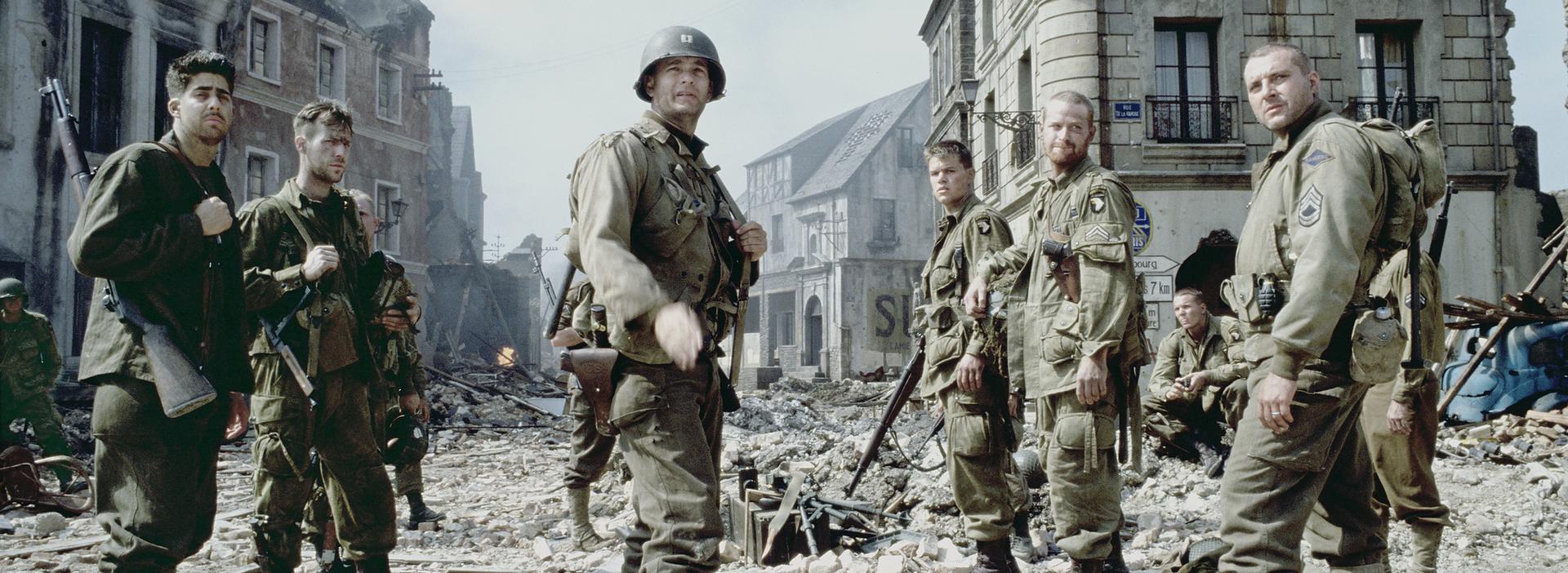



“Saving Private Ryan” has but one chief message. We know, because it is at the end. And it is marvelous. After seven men willingly die to save one (who then gets an immediate ride home to peace and freedom) the dying words whispered to him are, “Earn this.” A tremendous debt is laid upon the man. Could he (or any man) live his life in a worthy enough manner to “earn” the lives of eight men? Could you ever live up to that debt? Fifty years later, viewing their graves, he must turn to his wife and plead, “Tell me I’m a good man!”
In other words, “Tell me I didn’t waste those men’s lives! Tell me I lived up to them! Tell me I didn’t fritter away my years bought with their blood!” We Christians speak of “owing” Christ for what He did for us, as we sing songs of unworthiness and feigned sorrow, yet live lives of amazing selfishness and unthankfulness. A fictional movie has taught me to number my days and to thank the One who bought me better than all the sounding brass of modern Christian television and “seeker sensitive” churchianity combined.